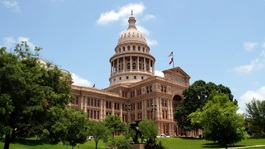
Publication
Senate Bill 29 on track to further Texas’ push as business hub
The Texas Business Court was established as a specialty court to handle complex business disputes on June 9, 2023, through the passage of H.B. 19.


United States | Publication | February 2024
The Consumer Financial Protection Bureau (CFPB) recently proposed two rules that would restrict the imposition of non-sufficient funds (NSF) fees and overdraft fees. These proposals are part of a larger “junk fee” initiative on the part of the CFPB. The NSF proposal would apply to all banks, savings associations, credit unions or other entities that hold an account belonging to a consumer (covered financial institutions) and would be implemented through a new 12 CFR Part 1042. The scope of the overdraft fee proposed rule, on the other hand, is limited to financial institutions with more than US$10bn in assets (large banks), and would be implemented through amendments to existing Regulations E and Z.
Currently, financial institutions are generally allowed to charge NSF fees when a consumer attempts to withdraw or pay an amount that exceeds the available funds in his or her account. When a consumer tries to make a payment, but does not have enough money in his or her account, generally one of two things happens. One outcome is overdraft—the financial institution extends credit to cover the difference and permits the transaction to go through. Generally, the institution charges a fee for the overdraft. The other outcome is that the financial institution simply declines the transaction for insufficient funds, which can also trigger fees for the customer. Generally, the institution only charges a fee for insufficient funds transactions that are initially approved, but there are insufficient funds in the account at the time of settlement—i.e. checks or electronic authorizations, like Automated Clearing House (ACH) transactions—which do not occur instantaneously. These fees are sometimes charged momentarily after the transaction itself is declined, but can also come a few days later.
Overdraft fees have traditionally been regulated (as a matter of federal law) as a feature of a transactional deposit account under Regulation E (implementing the Electronic Fund Transfer Act) and Regulation DD (implementing the Truth in Savings Act). Most overdraft fees are actually exempt from regulation under the Truth in Lending Act (TILA) and its implementing regulation (Regulation Z). While there are opt-in requirements for overdraft on ATM withdrawal and debit card transactions, consumers generally receive limited disclosures regarding overdraft-related options under Regulation E and are not entitled to any substantive protections under TILA. Formal overdraft lines of credit are generally subject to TILA’s requirements that apply to open-end (revolving) loan products, although there are notable distinctions (e.g. overdraft lines of credit accessed by a debit card or account number are not subject to the Credit Card Accountability Responsibility and Disclosure Act of 2009 (CARD Act) provisions).
Following the enactment of TILA in 1969, the Federal Reserve Board (which administered Regulation Z until responsibility was transferred to the CFPB in 2011) created an exception to TILA protections if the bank was honoring a check when its depositor “inadvertently” overdrew their account. Accordingly, charges imposed by banks for honoring overdrafts have not been considered a “finance charge” under Regulation Z, unless the bank has agreed in writing to honor the overdrafts in return for a fee. The Federal Reserve Board subsequently excluded debit cards with no credit agreement from Regulation Z’s definition of “credit card,” consistent with the exclusion for check-related overdraft charges.
However, in the 1990s and early 2000s, with the rise of debit cards, financial institutions began to raise fees and frequently use the exception to impose high volumes of overdraft fees on debit card transactions. According to the CFPB, annual overdraft fee revenue in 2019 was an estimated US$12.6bn, and the CFPB estimates that consumers have paid an estimated US$280bn in overdraft fees over the past two decades. In late 2021, large banks began to change overdraft policies, and reduce or eliminate overdraft fees following CFPB enforcement and supervisory efforts. These recent policy changes have lowered overdraft fee revenue across all regulated financial institutions to about US$9bn per year. Despite this overhaul, the CFPB has found that large financial institutions (over US$10bn in assets) continue to charge higher overdraft fees than their smaller competitors. The CFPB’s fact sheet accompanying the proposed rule states: “Large banks typically charge US$35 for an overdraft loan today, even though the majority of consumers’ debit card overdrafts are for less than US$26 and are repaid within three days.”
The proposed rule prohibits covered financial institutions from charging fees on transactions declined in real time—right at the swipe, tap or click. These types of transactions include declined debit card purchases and ATM withdrawals, as well as some declined peer-to-peer (P2P) payments.
While the CFPB acknowledges that financial institutions almost never charge fees for transactions that are declined in real time, the proposed rule is a proactive step to ensure that financial institutions do not impose these fees, which can occur for a host of reasons that are out of the consumer’s control. Specifically, as technology advances, financial institutions may be able to decline more transactions at the point of the swipe, tap or click, including for ATM, debit or prepaid card, online transfer, in-person bank teller and certain person-to-person transactions. The CFPB acknowledges, however, that there is considerable uncertainty around the future frequency with which financial institutions would charge NSF fees on covered transactions in the absence of the proposed rule.
Importantly, the proposed rule would consider fees for transactions declined in real time to be an abusive practice under the Dodd-Frank Act’s prohibition on unfair, deceptive or abusive acts or practices (UDAAP). The proposed rule does not position the NSF fee prohibition into an existing regulation. Rather, the proposed rule creates a new regulation (12 CFR Part 1042, Nonsufficient Funds Fees) while borrowing the definitions of “account,” “prepaid account” and “covered financial institution” from Regulation E.
The CFPB solicits comments on the proposed definition of covered transaction, including whether:
(1) the timing component is sufficiently clear to determine coverage; (2) the proposed definition appropriately accounts for emerging payment networks and technology innovations; and (3) the proposed definition captures the scope of relevant transactions where “potential” abusive practices are occurring in the market or are at risk of occurring in the future. We note that the CFPB and other regulators have separately already taken action to regulate NSF fees imposed on transactions that are initially approved and then later declined, so-called authorize positive, settle negative (APSN) transactions. Fees imposed in that context are not the subject of this rulemaking. Financial institutions should review their practices regarding the charging of overdraft fees on APSN transactions to ensure consumers are not charged overdraft fees for transactions consumers may not anticipate or avoid, as well as their disclosures and account agreements to ensure their practices for charging any such fees are disclosed appropriately, while keeping in mind any associated UDAAP risks.
The proposed rule would amend Regulations E and Z to update regulatory exceptions for overdraft credit provided by large banks, thereby ensuring that extensions of overdraft credit adhere to consumer protections required of similarly situated products, unless the overdraft fee is a small amount that only recovers applicable costs and losses. The proposed rule would apply to large banks, defined as those with assets of over US$10bn, which equates to approximately 175 large banks and credit unions in today’s market. According to the CFPB, these large banks are likely responsible for more than two-thirds of overdraft fee revenue. Accordingly, the proposal would not change the regulatory framework for overdraft services offered by financial institutions with assets of US$10bn or less. The CFPB plans to monitor the market’s response to this rule before determining whether to apply it to institutions below the US$10bn asset threshold.
The proposed rule would allow large banks to provide: (i) courtesy overdraft services with “breakeven fees” as well as (ii) “profitable” overdraft credit, by updating two regulatory exceptions from the statutory definition of “finance charge.” Courtesy overdraft services relate to the option to charge overdraft fees that do not exceed the costs and losses the large banks would incur as a result of the overdraft. Under the proposed rule, the fees for such services would not be considered a “finance charge” and would therefore not trigger coverage under Regulation Z. Such courtesy overdraft services would be considered non-covered overdraft credit.
Financial institutions would have two options in setting the courtesy overdraft fee: the “breakeven standard,” or alternatively, the use of a “benchmark fee.” The breakeven standard would allow an overdraft fee equal to the amount the financial institution incurs for covering an overdraft, i.e. as evidenced by the name, to break even. Losses incurred by the financial institution for writing off overdrawn account balances are intended to be remedied by this option. Large banks would be able to include any direct costs that are traceable to the courtesy overdraft as part of the “breakeven standard.” The benchmark fee model is dependent on a number of proposed options by the CFPB, but would ultimately depend on average charge-off losses financial institutions incur from overdrafts. The CFPB has proposed US$3, US$6, US$7 and US$14 as potential options. Should the CFPB choose a benchmark in the final rule, it would be impacted by whether the CFPB uses average losses, highest losses and waived fee losses in its dataset.
Banks would be able to offer profitable overdraft credit (above breakeven) to consumers for repayment of overdraft balances and fees. Profitable overdraft credit would become subject to Regulation Z, including provisions that govern open-end credit (e.g. the account opening disclosures, periodic statements and advertising rules) to the extent that such credit is not already within scope.
Other key changes contemplated in the proposed rule include:
The proposed rule for NSF fees has a proposed effective date 30 days after publication of a final rule in the Federal Register. The CFPB understands that a limited number of providers may currently charge fees that would be subject to the prohibition. As a result, the CFPB has requested comment on whether the proposed effective date should be modified to provide additional time for implementation. The comment period for the NSF fees proposed rule closes on March 25, 2024.
The proposed rule for overdraft fees has an anticipated effective date of October 1, 2025; however that could vary depending on when the final rule is published in the Federal Register. The comment period for the overdraft fees proposed rule closes on April 1, 2024.

Publication
The Texas Business Court was established as a specialty court to handle complex business disputes on June 9, 2023, through the passage of H.B. 19.

Publication
The Texas Business Court has repeatedly held that it lacks subject-matter jurisdiction to hear cases first-filed before September 1, 2024—regardless of the procedural posture by which the case arrived at the Business Court.
Subscribe and stay up to date with the latest legal news, information and events . . .
© Norton Rose Fulbright US LLP 2025